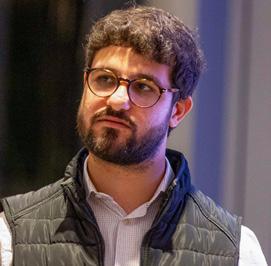
2 minute read
The Expert's Opinion
Precision oncology: challenges and ways forward
Clinical Oncology has undergone a significant transformation in recent years, driven by technological advances and deep knowledge of the human genome.
The range of therapeutic options and clinical approaches has increased exponentially, offering new perspectives on cancer treatment. Along with this progress, however, comes the challenge of navigating a vast ocean of information—surgery, chemotherapy, radiation therapy, hormone therapy, immunotherapy, transplants, and clinical trials. The options go further depending on the cancer and the type of tumor.
Genomic testing, by analyzing the genetic profile of the patient and the tumor, allows a deeper understanding of the disease’s molecular characteristics. Combined with artificial intelligence technologies, this information is filtered and organized to offer a more specific view, facilitating decisionmaking.
Despite this framework, genetic testing alone can pose a challenge to the doctor. The dilemma between tissue testing or liquid biopsy, the right time to order the test, choosing between an expanded or specific panel, managing scarce materials, and interpreting the results are just a few of the questions that may arise.
Doctors must have support tools available to help them make the best decisions. After all, it’s not enough to have access; you need to know how to use it. In this sense, Grupo Fleury, a company with operations in Latin America through partnerships with other laboratories, doctors, etc., which aims to increase its footprint, has structured and made available a series of mechanisms to support oncologists and physicians in clinical practice and decision-making.
Like other areas of medicine, oncology tends to be increasingly precise and personalized. Networks of laboratories, pharmaceutical companies, suppliers, and other protagonists of this revolution must invest more and more in education, train their professionals, and structure fast and transparent contact channels. With more and more data, we will notably need intelligence to transform it into accurate information and benefits for the patient.
Gabriel Minelli
Director of Genomics Business at Grupo Fleury, a leading company in Latin America.











